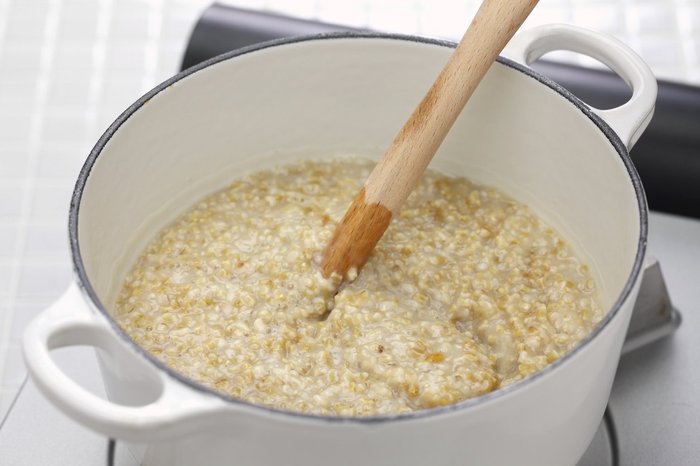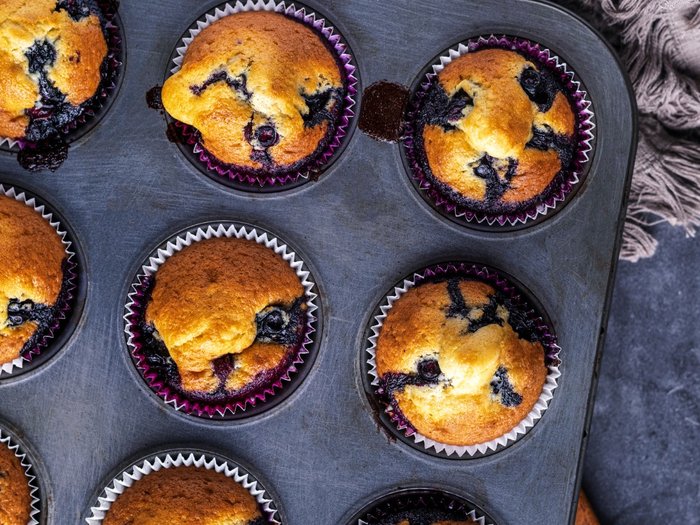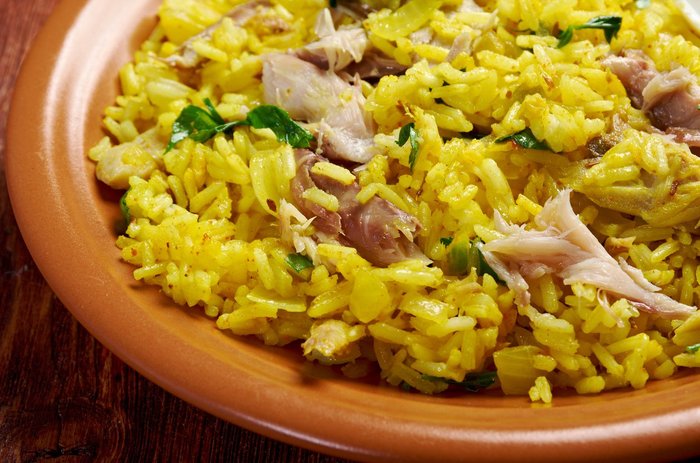For most of us, a good day starts with a good breakfast – something to both sustain and satisfy. But it can be hard to feel inspired morning after morning, particularly if you’re making kidney-friendly choices and your options feel more limited.
CKD-friendly breakfast choices
“There are a few things to bear in mind when it comes to breakfast choices for people living with chronic kidney disease (CKD),” says kidney dietitian Laura Kyte. “Depending on the stage of your CKD, you may have been advised to limit foods rich in potassium and / or phosphate. Unfortunately this may mean breakfast favourites such as tomatoes, avocados, spinach, potatoes and bananas are best off the menu.”
Fruit
Starting your day with a portion of fruit is still important though, with Laura recommending low-potassium options such as apples, pears, blueberries, watermelon or clementine. “If you’re cooking a more savoury brunch, stick with vegetables such as kale, red peppers, garlic and onions, which are all lower potassium.”
Cereals
Following a kidney-friendly diet will also mean staying away from cereals that feature chocolate, nuts or dried fruits, as well as fruit juices, including orange juice – all of which are high in potassium. “Cranberry juice is the only exception here, due to its low potassium content,” says Laura.
Coffee and tea
Coffee may be limited to around one cup a day (including decaf), with a good quality filter coffee slightly better than instant. “Chicory extract is one alternative to coffee, though it might not quite hit the spot, and tea is fine to drink.”
Dairy and plant-based milk alternatives
When it comes to dairy products, Laura notes how they tend to be high in both potassium and phosphate. “Most CKD patients will be limited to around half a pint (285ml) of milk a day – and this includes yoghurt too.” This can impact breakfast choices as you may not want to use your allowance all in one go in the morning.
There are, however, brilliant plant-based milk alternatives available. “I recommend rice, soya, oat or almond milk – ideally an organic brand, as they won’t have any potassium or phosphate containing additives,” says Laura.
As for cheese, Laura suggests no more than 4-6oz (up to 170g) a week of hard cheese, and slightly more if it’s a soft cheese, such as brie, goat's cheese or cream cheese.
Bread
Contrary to much advice online, Laura would always recommend brown bread over white. “Wholegrain breads are often demonised within the CKD community due to their higher mineral content, but in reality, the higher fibre means much of the potassium and phosphates aren’t readily absorbed into the body.”
Finally, Laura believes one of the best ways to sustain a kidney-healthy breakfast habit is to ensure variety across the week. “In my experience people with later stage CKD often find they wake up feeling nauseous, with eating being the last thing they want to do” says Laura. “In which case, it may mean that you wait a little after waking up for breakfast – but at least you know when you do have it, you’ll enjoy it.”
Make your own kidney-friendly breakfast

Spiced porridge with quick-stewed apples
A cosy treat for colder mornings, porridge is a well-established breakfast favourite for a reason – and it’s no different for those with CKD. Hearty and healthy, oats are rich in fibre and a great option. Depending on the time of year and availability, you can swap the apple for other seasonal, low-potassium fruits such as pears, clementine, blueberries or even canned peaches in juice (drained).
To make your oat porridge, add around 40g of oats (per person) into a pan with 200ml of a dairy milk-alternative, plus a pinch of cinnamon and all spice. Meanwhile, core and slice an apple and add to a small pan with two teaspoons of water. Add a pinch of cinnamon, cover and cook on medium heat for around 10 minutes (or until the apple is tender). Serve your porridge with an extra splash of milk if needed.
If you fancy something a bit different, why not try bulgur wheat porridge? Lower in potassium than other whole grains, it’s also a good source of B vitamins, magnesium, iron, and manganese.
Creamy garlic beans on toast
Tinned beans are a great source of fibre, protein and iron, and since they’re plant-based, the phosphorus and potassium is not absorbed as well as from animal sources.
Cannellini beans work well here, but you can also use mixed beans or even kidney beans. Choose no-salt-added varieties if possible, and make sure to drain and rinse in water.
Add a healthy glut of olive oil to a pan with two crushed and finely chopped garlic cloves. Sauté over a medium-low heat for a few minutes until the garlic is starting to soften and turn golden (but not burn!), before adding in your beans. Simmer for around 10 minutes, adding a splash of water if needed, until the beans are softened but still retain their shape. Take off the heat and stir in a dollop of crème fraîche. Pile on top of toasted brown or wholegrain bread. Finish with chopped chives.

Blueberry wholegrain muffins
If you’re wanting a ‘grab-n-go’ breakfast option, these muffins are a brilliant choice. You can bake them up over the weekend ready for the week ahead, and then freeze and take one out the night before, as and when you fancy.
Blueberries are a great low-potassium fruit option, but you could also swap in shredded apple and carrot for a more autumnal option, or dried cranberries and a little orange zest for a more festive flavour.
To make, simply add 200g wholewheat flour to a mixing bowl with 50g rolled oats, 3-4 teaspoons brown sugar, 1 teaspoon baking soda and 1 teaspoon baking powder, a pinch of ground cinnamon, 2 eggs, 4 tablespoons vegetable / rapeseed / light olive oil and 150ml of Greek or plain yoghurt. Mix together well and add in a big handful of blueberries. Sprinkle a few oats on top if you’d like. Dollop into a greased muffin tray or 10 silicone muffin cups, and bake in a pre-heated oven at 180°C/350°F/Gas Mark 4 for around 25 minutes, or until golden.
Omelette with spring onions and goat's cheese
Omelettes are a speedy and satisfying option for when time is short, but hunger levels are high. The goat's cheese adds delicious creamy tang, but can just as easily be left out, or enjoyed as a weekly treat, for those limiting cheese. You can keep it simple with chopped spring onions, or play around and add in other chopped vegetables such as red peppers and onions – all low-potassium options.
To make an omelette for one, whisk two eggs with a fork and add in a little black pepper. Heat up a drizzle of olive oil in a small frying pan and pour in the eggs. Sprinkle finely sliced spring onions on top and add a few small dollops of soft goat's cheese around the omelette surface. Let it cook for just a few minutes before flipping and cooking for a final minute.

Haddock and kale kedgeree
Rice, be it white, wild or brown, is a great, kidney-friendly choice – low in potassium and phosphorus, it’s also filling and provides energy for the day ahead. Haddock is a brilliant source of protein, but oily fish like salmon – as part of your two portions a week – would also work well.
To make your quick morning kedgeree for two people (with leftovers), sauté an onion in olive oil until soft and golden, adding in one teaspoon of turmeric and half a teaspoon of curry powder. Stir in two garlic cloves (crushed and chopped) and two bags of ready-cooked rice (500g total – opt for a pouch with no added salt). Pour in a large ladleful of low-salt vegetable stock, and nestle in two fillets of haddock, cut into pieces, and a large handful of green kale, blanched and torn into pieces. Cover and simmer for 10-15 minutes until the fish is opaque and cooked through. Finish with fresh parsley.
Buckwheat granola with macadamia nuts and cranberries
Nutty, crunchy and incredibly moreish, buckwheat granola is a wholesome way to start your day. Buckwheat is not only high in fibre, magnesium, and iron, but, crucially for kidney health, it’s low in phosphorus. Cranberries are lower in potassium than other dried fruits and are a wonderful addition.
To make the granola, add approx. 150g of roasted buckwheat (kasha) into a bowl with 50g chopped macadamia nuts and a generous handful of dried cranberries. Spread the mixture across a large roasting tray. Pour over a few generous glugs of olive oil and a drizzle of honey and a sprinkle of spice (nutmeg, ginger and cinnamon work well, as do fennel seeds). Finish with a zest of orange and mix around with a wooden spoon before placing in a pre-heated oven (170°C/325°F/Gas Mark 3) until golden (around 15-20 minutes, checking and stirring after 10 minutes).